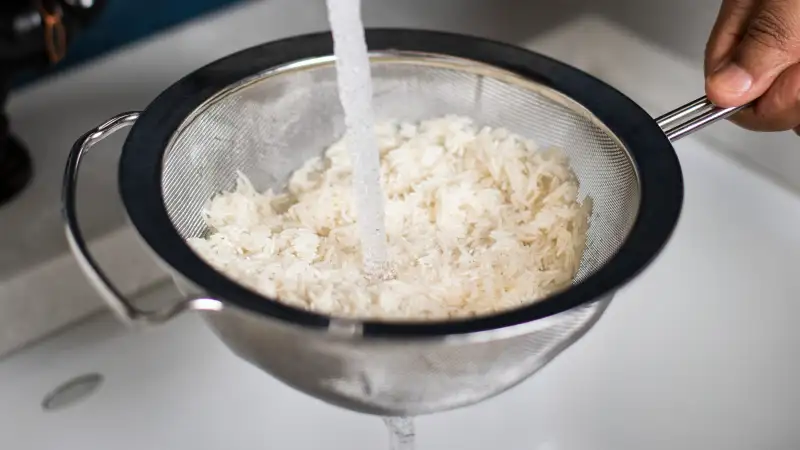
Washing rice before cooking is a common practice in many cuisines around the world. While some may consider it a tradition, others argue that there are tangible health benefits associated with this step. Let’s delve into why washing rice might be more than just an old wives’ tale.
Removing Excess Starch
When you wash rice, the primary outcome is the removal of surface starch. This starch can cause rice grains to clump together and become gummy after cooking. Rinsing the rice can result in fluffier and less sticky rice, which is often desirable in many dishes. While not directly a health benefit, the improved texture can certainly enhance the enjoyment of your meal.
Reducing Contaminants
Rice can sometimes contain contaminants like pesticides, herbicides, and traces of fertilizers from conventional farming. Washing rice can help reduce the amount of these unwanted chemicals. However, many of these pollutants are pervasive and may not be completely eliminated through washing alone.
Additionally, rice is known to absorb arsenic from soil and water more than other crops. Rinsing rice can reduce the arsenic content to some extent, which is beneficial since long-term exposure to high levels of arsenic can lead to health issues.
Eliminating Dust and Debris
The journey of rice from paddies to your plate is a long one, and it can pick up a fair amount of dust and debris along the way. Washing rice can help remove these impurities, ensuring that what you consume is as clean as it can be.
Nutrient Loss Considerations
It’s important to note that washing rice may lead to some nutrient loss, especially if the rice is enriched with vitamins and minerals. The enrichment coating applied on the rice grains can be washed off, reducing its nutritional value. This is a point of consideration for those who rely on enriched rice as a dietary staple for specific nutrients.
Cultural and Culinary Preferences
In many cultures, washing rice is traditionally done for reasons that align with both purity and presentation. While health benefits can be associated with the practice, cultural norms play a significant role in its perpetuation.
Conclusion
In conclusion, washing rice before cooking does offer several benefits. It can improve the taste and texture of your rice, reduce contaminants and clean off any residual dirt or debris. However, one should also consider the potential loss of nutrients in enriched rice and weigh whether the benefits apply to their specific dietary choices. Like any food preparation habit, the choice to wash or not to wash rice is personal and can be influenced by a variety of factors, including health considerations and culinary traditions.



